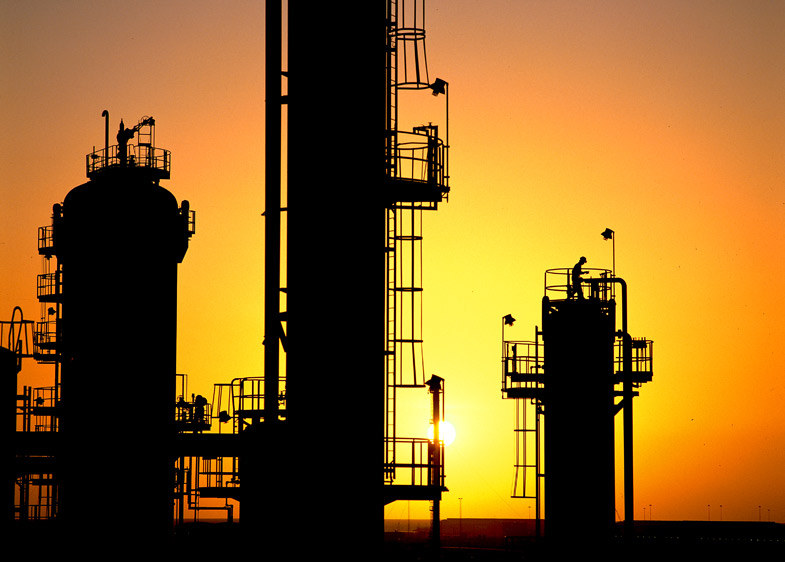by Barney Jopson* Booming US oil and gas production has been portrayed as a bounty that will boost America’s energy independence, but the crisis in Ukraine has cast it in a different light: as a strategic weapon to help allies overseas
Booming US oil and gas production has been portrayed as a bounty that will boost America’s energy independence, but the crisis in Ukraine has cast it in a different light: as a strategic weapon to help allies overseas.
The US has surpassed Russia to become the world’s biggest gas producer and this week two senior Republicans called for the US to expedite natural gas exports to Europe to help reduce its allies’ dependence on Russian fuel.
This is stoking debate on what the US wants to achieve with the energy unlocked from shale rocks. The White House and Congress must decide if it is a tool for enhancing global security, developing US industry, or keeping fuel prices low for Americans.

Those outcomes are not mutually exclusive, but they are tied back to one question: should the US export its energy or keep it at home?
At present there is a de facto ban on oil exports and while natural gas can be sold overseas, exports to countries that do not have a trade agreement with the US, including the EU, require government approvals that the energy industry says are coming grindingly slowly.
Until this week, the export debate had centred on domestic issues, but Ukraine has changed that, says Edward Chow, a former Chevron executive and now senior fellow at the Center for Strategic and International Studies, a think-tank.
"So far we’ve talked about exporting gas or crude oil mainly as whether it’s a good thing for US domestic economy or not. This adds a geopolitical, foreign policy dimension that had been sort of in the background before.”
John Boehner, the Republican speaker of the House of Representatives, said that expediting the approval of natural gas exports to Europe was one way to "stand up to Russian aggression”. Senator Marco Rubio, a potential Republican presidential candidate, said the US should open up natural gas exports to allies "so that they are less susceptible to Russia’s efforts to use energy as a weapon”.
This week, Gazprom, Russia’s state-run natural gas company, said it would stop selling gas at a discount to Ukraine.
In reality the US can do nothing to help its allies now. Since 2011 the US energy department has approved five export terminals for liquefied natural gas, or LNG, from the shale boom. But the first, Sabine Pass in Louisiana, is not due to begin exporting until the second half of 2015. At least 24 applications are pending.
Viktor Yanukovich has been ousted, but Russia is flexing its military muscle, fearing a threat to its interests in Ukraine
"Uncle Sam could stroll to the rescue but not rush to the rescue because it takes so long to build export terminals,” says Daniel Weiss, senior fellow at the Center for American Progress, a left-leaning think-tank.
National security will nonetheless alter the terms of the export debate and give it a sharper political edge ahead of US midterm elections in November.
The opponents of gas exports are led by companies, notably Dow Chemical, that want cheap US gas as a feedstock. On Wednesday, a group of manufacturers called the Industrial Energy Consumers of America said that exporting gas was the wrong geopolitical solution: instead the US should export hydraulic fracturing technology to let others extract gas from their own shale.
Also opposed to gas exports are environmentalists, who say an increase in overseas sales would spur more gas production and potentially greater pollution.
The pro-export lobby is led by the oil and gas industry and its trade group the American Petroleum Institute, which says more exports would create more US jobs. This week it embraced the geopolitical role of gas, too. "Our LNG exports could significantly strengthen the global energy market against crisis and manipulation,” said Erik Milito, an API director.
Eastern European countries that depend on Russian gas are also urging the Obama administration and Congress to loosen restrictions.
The
US
gas price benchmark is roughly half the price in Europe and one-quarter of the
price in Asia – and both the pro- and anti-export camps argue that their
preferred option would keep American prices low
Lithuania gets all its natural gas from Russia and is building an LNG terminal where it would like to bring American LNG. Rolandas Kačinskas, deputy mission chief at its Washington embassy, says: "We had the urgency already. Events in Ukraine proved once again that we have to pursue this policy without further delay.”
The politics of energy exports have as much to do with the geography of production and consumption as the Republican versus Democrat divide. Mark Udall, a Democratic senator from gas-producing Colorado, this week said the US should export his state’s natural gas to counter Russian aggression.
In states that consume more than they produce, politicians care about the effect of natural gas exports on the price that consumers pay for electricity and heating fuel.
The US gas price benchmark is roughly half the price in Europe and one-quarter of the price in Asia – and both the pro- and anti-export camps argue that their preferred option would keep American prices low.
Uncertainty over who is right has been a reason for politicians to avoid the issue. But Scott Lincicome of the Cato Institute, a free-market think-tank, says: "The Ukraine situation could provide impetus for politicians that didn’t really want to get into this in an election year to address it. They might be forced to.”
*"Financial Times", March 6, 2014




